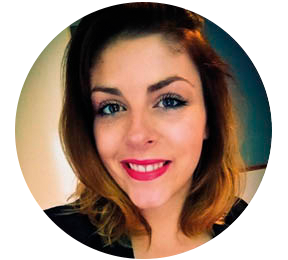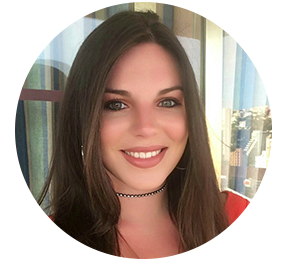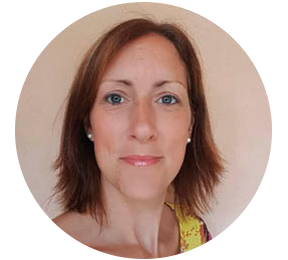The PPP - The State of Mortgages
Request a Callback
By clicking on submit I / We give consent for you to call me / us on the number provided to discuss my / our financial requirements.
Caring - Understanding - Reliable - Advice
Home » Guides & News » The PPP – The State of Mortgages

The State of Mortgages
For this episode of the Practical Protection Podcast, Kathryn and Roy are joined by special guest, Martin Stewart from the London Money Group. They’re focusing this time on what is going on in the mortgage world, why protection insurance is so important, and of course, the Consumer Duty Principle.
Martin is now purely in the mortgage and protection space, and it’s been a very interesting market recently. Having worked in both the mortgage and protection industry, Martin has seen first hand how important protection insurance really is. By seeing the gap between mortgages being taken out and the number of protection insurance policies being arranged, it’s clear that more needs to be done to spread the importance of protection.
Interestingly, mortgage lenders don’t push for their clients to take our protection insurance, but Roy questions this. It can be understood from a compliance point of view, but is it not in the mortgage lenders best interest if their clients are protected? Especially when Martin shares statistics, such as the number of houses which are repossessed because of death or inability to pay the mortgage due to the diagnosis of a critical illness.
Kathryn, Roy and Martin all agree that there is definitely a need for income protection. The same way mortgages have become complicated over the years, some might think the same about protection insurance too, but Kathryn talks about how simple protection insurance can actually be. There are of course exceptions but on the most part, it can be quite simple to arrange protection insurance. Most people require a straightforward type of policy, like a decreasing life insurance or life insurance with critical illness cover, when arranging a mortgage; this is considered the minimum level of insurance needed. What usually makes these policies more difficult is particular risks that a person might have, like a medical condition or hazardous occupation, but again, these aren’t always an issue.
Many years ago there was a huge drive to get mortgage advisers to arrange protection, but in reality it was just an extra system for them to search for policies without clear guidance or training on how to provide this advice. This might have made things better for clients in terms of hearing about protection insurance more, but there’s a few issues that haven’t been resolved. Protection hasn’t traditionally been a part of a mortgage adviser’s day to day work, and if a person isn’t too sure on protection insurance, this system doesn’t give them extra knowledge, it would just show a range of prices.
With many types of financial adviser, you must take part in training or have a certain qualification to be able to advise clients. Which leads on to the question, why is that not the case for protection insurance advisers? Realistically and unfortunately, a person could become a protection insurance adviser with half a day’s training (if that). Is that enough to truly be able to advise people in the best way?
There isn’t a minimum qualification needed, and Kathryn thinks that more needs to be done to make sure advisers have the relevant training and skills before taking on clients. It is this reason that people like Kathryn have created their own training course. Kathryn’s training course covers a whole range of courses, all of which can be essential for a person wishing to be a protection adviser. And in fact, people don’t have to even sign up to the whole course, they can pick and choose topics they wish to know more about, as several of the topics covered could be really useful to know about for a range of roles. Courses like this are great, because they apply protection insurance to the real world. This shouldn’t be a responsibility of a few people to create a training course, more should be done to improve the standard of protection advisers across the industry.
There are a few reasons why mortgage advisers might not recommend protection insurance. One of them being that they might think it takes too long. If medical reports or further evidence is requested then it can at times take more time than applying for a mortgage, but what is a few weeks for many years of financial protection? Another thing is that there’s a misconception about how much protection costs. Life insurance policies can be very cheap, and income protection can potentially be as little as £30 a month, just £1 a day. Finding the perfect policy for a client at an affordable price at times can be tricky, but even having a little bit of protection in place is much better than nothing. With any type of protection insurance, there’s always the option of changing the sum assured or term of the policy so that it is a more reasonable price.
There’s also the dreaded sentence of “it won’t happen to me”. People at times really can think they’re indestructible, or they might not know anybody who has been affected by anything such as a critical illness. Really though, it can happen to anybody. Sharing statistics on the likelihood of receiving a diagnosis with clients can highlight the need for protection insurance. COVID has helped with this a little bit too, people saw that not having their regular income in place can make a huge difference, and it has been found that the average person in the UK has just 3 weeks worth of salary in savings.
The Consumer Duty Principle comes into conversation again, at the moment it’s in the thoughts of many people who work within the protection industry. Martin thinks that this will have a positive effect on the mortgage industry, and Kathryn and Roy agree that it should have a positive impact on the protection insurance industry too.
To catch what else was said, you can listen to this episode below or on the Practical Protection Podcast website.
Remember, if you have listened to this as part of your work, you can claim a CPD certificate on the website, thanks to the podcasts sponsors Octo Members.
If you would like to know more about how to arrange protection insurance, take a look at Kathryn’s Protection Insurance in Practice course.
Related blogs
The Practical Protection Podcast – AMI Protection Viewpoint
Categories: Practical Protection Podcast
Client Reviews








Talk to a Friendly Adviser
Get a Quote
What We Offer?
- Experienced and knowledgeable advisers
- Specialist advice with no fees to pay
- Full assistance with all of your paperwork
- Put your policy into trust at no cost
- A dedicated insurance adviser for you
Our Recent Awards





































